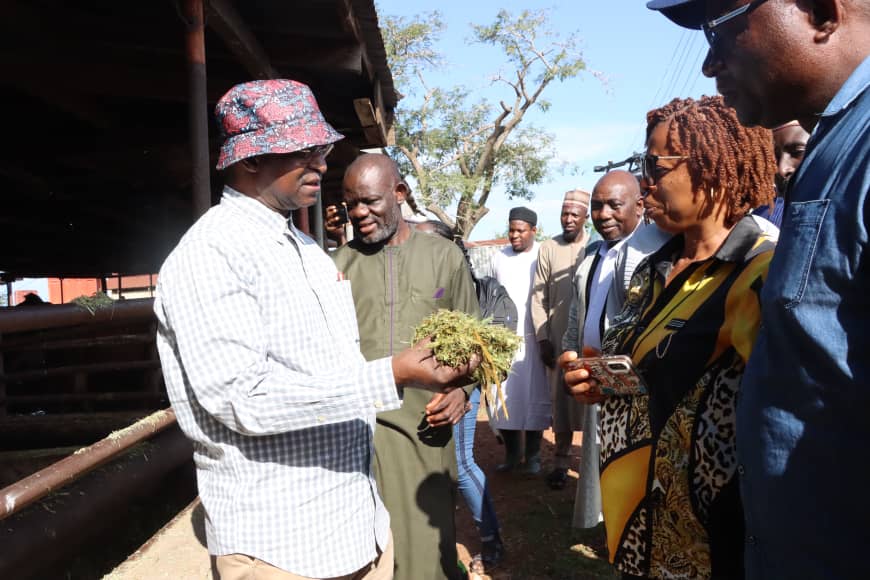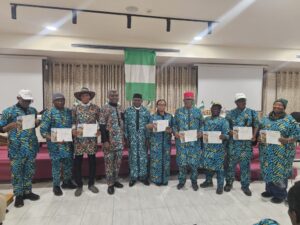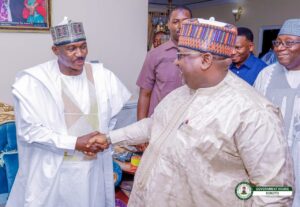
Chidimma Uchegbu -Abuja
The Federal Ministry of Livestock Development has reaffirmed its commitment to end open grazing by accelerating the development of three grazing reserves in Abuja as models for nationwide adoption.
Addressing livestock reporters at the 2025 Media Retreat in Kaduna, the Minister of Livestock Development, Idi Mukhtar Maiha, assured, “All animals roaming city centres will be relocated to designated reserves; and we mean it.”
The Minister emphasised that the Ministry’s focus on the resuscitation of the country’s grazing reserves is not a new pronouncement but a clear direction that has been pursued consistently over the past months, noting that three grazing reserves in Abuja have been earmarked for accelerated development.
He also said that work is also ongoing in other parts of the country to ensure that pastoralists have safe, secure and sustainable grazing grounds.
According to him, “We are not unveiling this plan for the first time. It has been a consistent policy direction of this administration, but now we are entering the stage of implementation.
Developing grazing reserves will enable us to reduce the practice of open grazing, enhance productivity, and minimise conflicts between farmers and herders.”
“Our countryside should have milk trucks, not armored vehicles; milking machines should replace machine guns,” he added.
The initiative is part of the National Livestock Growth Acceleration Strategy, aimed at ensuring peace, food security, and rural prosperity.
Welcoming participants to the retreat, the Permanent Secretary of the Ministry, Dr. Chinyere Ijeoma Akujobi, who was represented by the Director, Ruminants and Monogastric Development, Victor Egbon, emphasised the critical role of strategic communication in driving livestock growth and shaping public perception of government initiatives.
She expressed confidence that the retreat would strengthen partnerships, enhance reporters’ skills, and amplify the narrative of opportunities and transformation within Nigeria’s livestock sector.
The retreat featured a rich blend of presentations from experts and seasoned practitioners who engaged participants on issues central to agricultural reporting and communication for development.
The Former Group Managing Director of LEADERSHIP Group and Publisher of Daily Asset, Dr. Cletus Akwaya, delivered a paper on ethical and investigative reporting in the livestock sector, where he challenged journalists to “go beyond episodic coverage of farmer-herder clashes” and instead spotlight the opportunities, innovations, and economic potential within the livestock industry.
Another session by Peter Dama, explored the basic principles of development communication, stressing the importance of contextual reporting, cultural sensitivity, and the need to frame livestock issues in ways that resonate with rural and urban audiences alike.
Participants were reminded that communication is not merely about transmitting information but about facilitating dialogue, building trust, and fostering collective action.
The session on understanding the livestock value chain in Nigeria by Dr. Ishaq Bello, explained that the sector contributes significantly to the nation’s Gross Domestic Product (GDP) but remains under-optimised due to weak infrastructure, policy gaps, and inadequate investment in modern practices.
In an era of digital disruption, the retreat also examined the role of new media tools in shaping agricultural journalism, particularly in the livestock sector. Technology expert, Oluseun Taylor, demonstrated how digital platforms, data visualisation, and multimedia storytelling can help journalists bring livestock issues to the mainstream, making them more relatable to citizens and policymakers alike.
He stressed the need to equip journalists to deploy technology creatively when covering policy frameworks, research outcomes, and field realities. Participants were urged to think beyond traditional news cycles and harness social media as platforms for advocacy and education.
The retreat also featured a field visit to Zaidi Farms, where participants had firsthand interaction with the realities of livestock infrastructure. Participants were better able to appreciate the sector’s complexities and opportunities, even as the Ministry reaffirmed its commitment to continued engagement with the press as partners in shaping public discourse and policy advocacy.





Join the Conversation